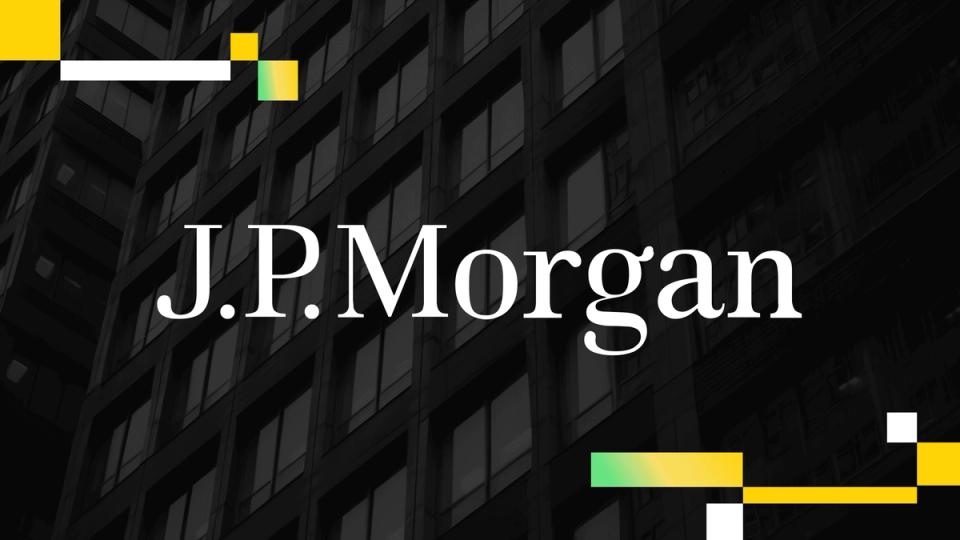The Senate Agriculture Committee released a draft text for its version of market structure legislation.
Nov 15, 2025, 7:00 p.m.
The Senate Agriculture Committee released its own discussion draft market structure bill, addressing digital commodities and how the Commodity Futures Trading Commission might oversee that sector of the crypto market.
You’re reading State of Crypto, a CoinDesk newsletter looking at the intersection of cryptocurrency and government. Click here to sign up for future editions.
The narrative
We have a new draft crypto market structure bill! Are we any closer to seeing this bill pass through Congress? Sort of.
Why it matters
The Senate Agriculture Committee publishing a first draft bill text is a key step. The draft as released has a number of parts that will likely be updated or otherwise need agreement between Republicans and Democrats before it can progress further, but we now at least have confirmation that lawmakers and their staffers are still working on this.
Breaking it down
The new draft bill defines digital commodities and explains how Congress might like to see the CFTC regulate them as it moves the agency closer to being the primary spot market overseer for crypto.
The text of the bill included a number of bracketed sections, indicating areas where the lawmakers had not yet come to a firm agreement on what the final text should say. These bracketed sections included items as simple as definitions, as well as more complex rulemaking directions for the CFTC.
“The CFTC plays a critical role in maintaining the integrity and stability of our financial and derivatives markets," said Committee Chair John Boozman in a statement. "As Congress works to expand authority for the commission to oversee the trading of digital assets that are commodities, it’s essential that we also ensure it has the tools, personnel and resources necessary to carry out this new mission, along with its current responsibilities. Strengthening this institution better protects consumers, encourages innovation, promotes transparency and upholds liquid and resilient markets."
Sen. Cory Booker said in a statement that the bill was "a first step," but that lawmakers "still have significant work to do before advancing the legislation out of committee."
"I’m specifically concerned about the lack of resources and the bipartisan commissioners at the CFTC, preventing regulatory arbitrage, as well as the ongoing corruption of public officials and whether Congress has created the correct guardrails to prevent those misdeeds," he said. "I urge my colleagues and external stakeholders to come together to address these issues."
One provision in the draft would call for the CFTC to have at least two commissioners and minority party commissioners before it could actually begin any rulemaking. Another provision touched on conflict-of-interest concerns, but both of these provisions had the brackets suggesting that the wording or the provisions themselves might change before the bill is finalized.
The crypto industry's representatives seemed to appreciate that the bill is still moving forward, despite the recent record-breaking government shutdown and the decreasing amount of time left in the year for Congress to get anything done.
In a statement, Blockchain Association CEO Summer Mersinger called the release of the draft "another important step," while DeFi Education Fund Executive Director Amanda Tuminelli said it was "good to see the [Agriculture] Committee make progress on market structure."
Ji Hun Kim, the CEO of the Crypto Council for Innovation, called the draft "meaningful positive progress toward establishing a comprehensive, fit-for-purpose market structure framework for digital commodities in the U.S.," in a statement.
The process still needs to be joined together with the Senate Banking Committee's, Mersinger noted in her statement.
"We are hoping that the section left open for DeFi will be filled in with robust developer protections that clearly distinguish centralized intermediaries from software developers without custody and control of other people's money," Tuminelli said.
Looking ahead, the specific pathway to passage is a little hazy. One individual who works in D.C. policymaking told CoinDesk that there are roughly three work weeks in December for Congress, severely limiting the amount of time available for lawmakers to hold hearings and votes on crypto legislation this year. That means that any floor work on the bill is unlikely to happen until next year, this person said, a view echoed by Ron Hammond, head of Policy and Advocacy at Wintermute.
Hammond told CoinDesk earlier this week that one or both committees could hold a markup hearing and vote on passage out of committee by the end of the year, but it would require a lot of work.
And even then, the bills would have to be combined before any possible Senate floor vote. Once that happens, the combined market structure bill would then go to the House of Representatives, which could vote on the Senate version (as it did with the Genius Act) or try to get some of its own priorities in.
"I do think the House is going to be in the awkward position of having to take what the Senate produces," said Chainlink Head of Public Policy Adam Minehardt on CoinDesk TV on Thursday.
The House might want to ensure some form of its own bill, the Clarity Act, is included in whatever President Donald Trump signs, but "the Senate is going to continue to be in the driver's seat," he said.
However it shakes out, the bill won't go to Trump's desk until after the House has a floor vote, and that could take us well into 2026 — and election season — before he's able to sign it.
Wednesday
- 15:30 UTC (10:30 a.m. ET) The Senate Banking Committee will hold a confirmation vote for various nominees, including FDIC Chair nominee Travis Hill.
- 20:00 UTC (3:00 p.m. ET) The Senate Agriculture Committee will hold a confirmation hearing for CFTC Chair nominee Mike Selig.
If you’ve got thoughts or questions on what I should discuss next week or any other feedback you’d like to share, feel free to email me at [email protected] or find me on Bluesky @nikhileshde.bsky.social.
You can also join the group conversation on Telegram.
See ya’ll next week!
More For You
Protocol Research: GoPlus Security

What to know:
- As of October 2025, GoPlus has generated $4.7M in total revenue across its product lines. The GoPlus App is the primary revenue driver, contributing $2.5M (approx. 53%), followed by the SafeToken Protocol at $1.7M.
- GoPlus Intelligence's Token Security API averaged 717 million monthly calls year-to-date in 2025 , with a peak of nearly 1 billion calls in February 2025. Total blockchain-level requests, including transaction simulations, averaged an additional 350 million per month.
- Since its January 2025 launch , the $GPS token has registered over $5B in total spot volume and $10B in derivatives volume in 2025. Monthly spot volume peaked in March 2025 at over $1.1B , while derivatives volume peaked the same month at over $4B.
More For You
U.S. DOJ Pursues North Korea's Illicit Money Machine, Seizes More Crypto

U.S. authorities secured several criminal convictions and gathered another $15 million in proceeds from North Korean crypto heists, the Justice Department said.
What to know:
- Prosecutors and investigators in the U.S. Department of Justice rounded up another batch of convictions and crypto seizures in its ongoing pursuit of bad actors from North Korea.
- The latest seizure of $15 million in USDT adds to other recent digital asset confiscations from U.S. authorities, raising questions about how the funds may relate to the U.S. plans to establish crypto reserves.
.png)
 1 hour ago
1
1 hour ago
1




